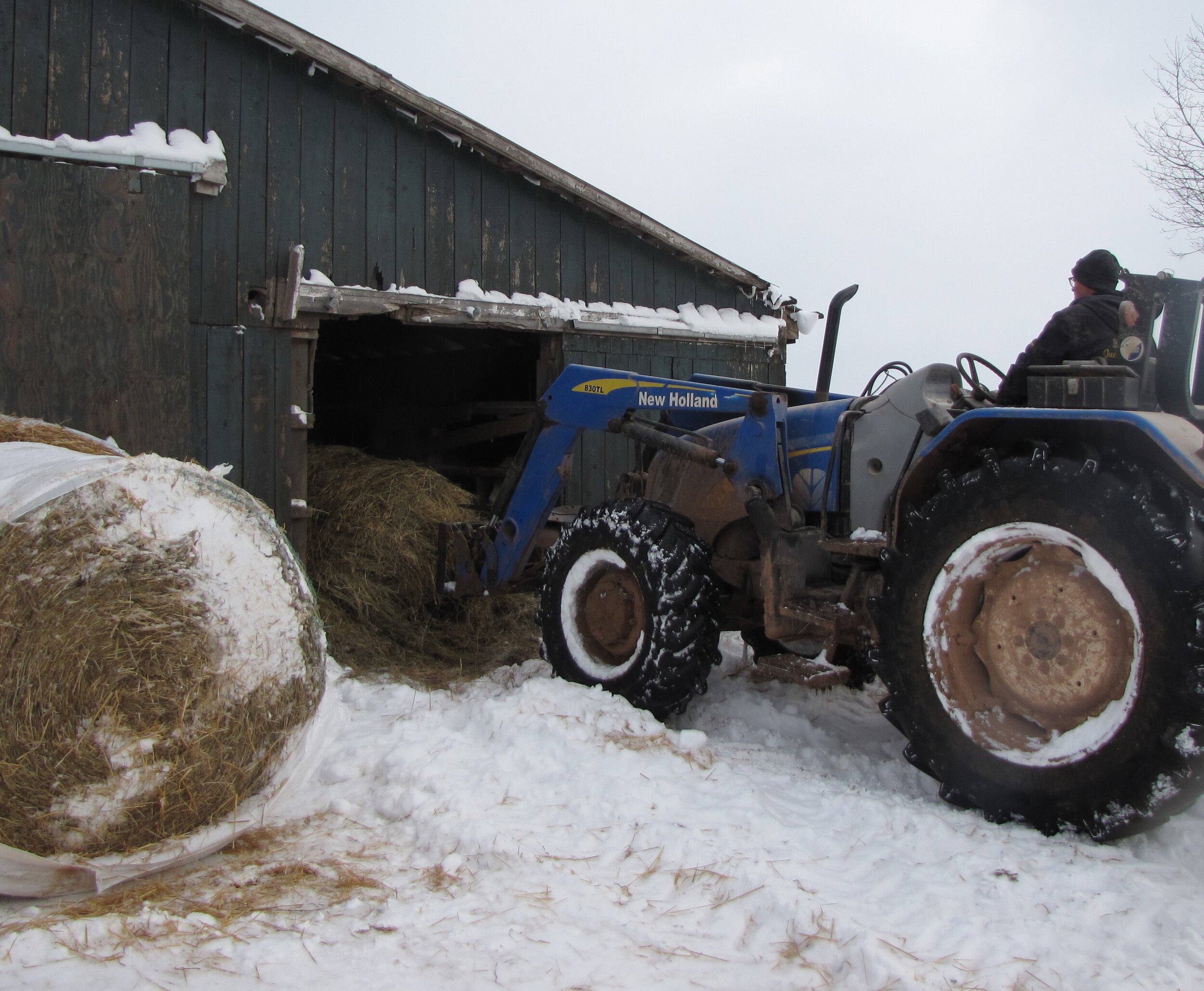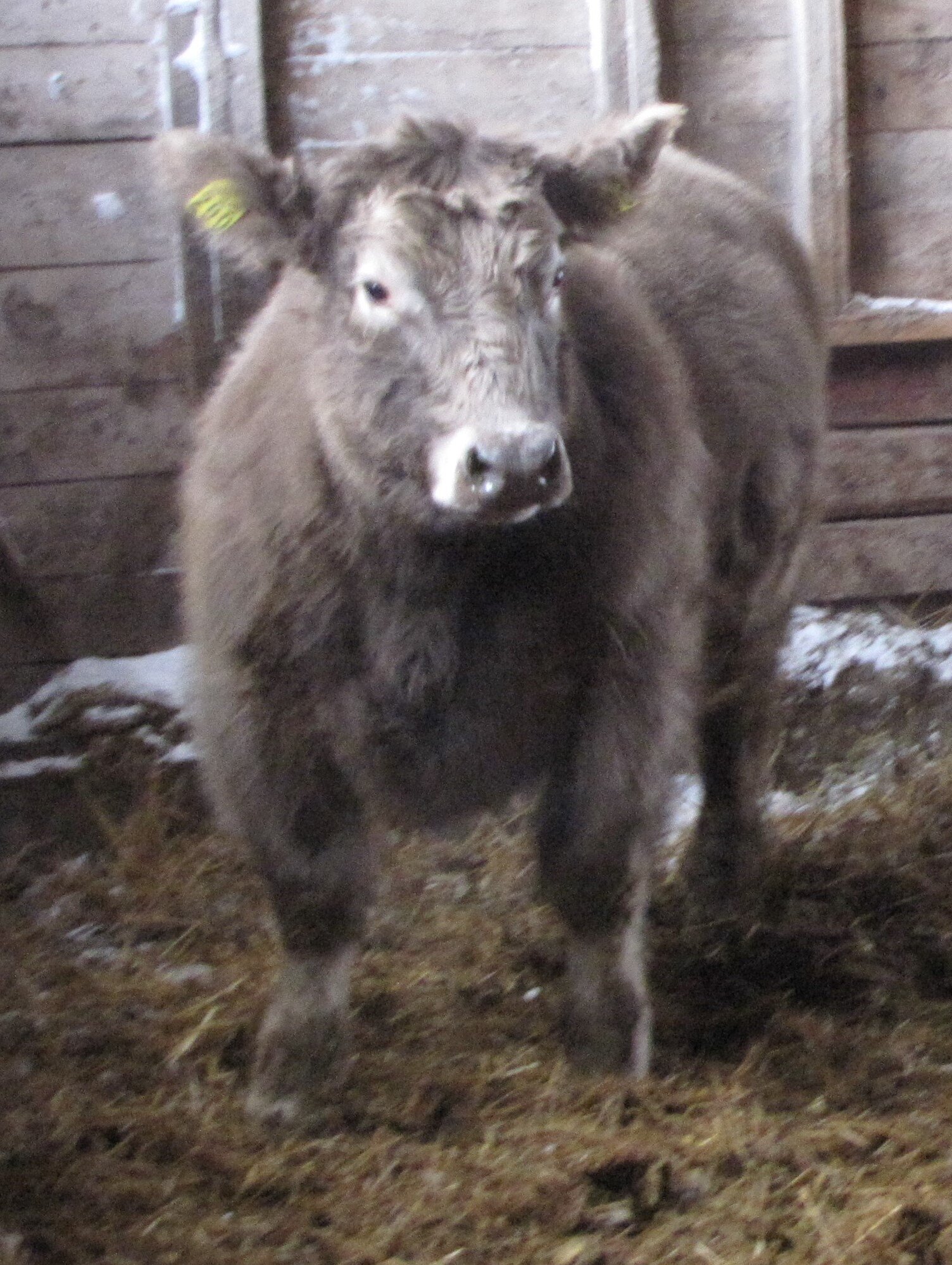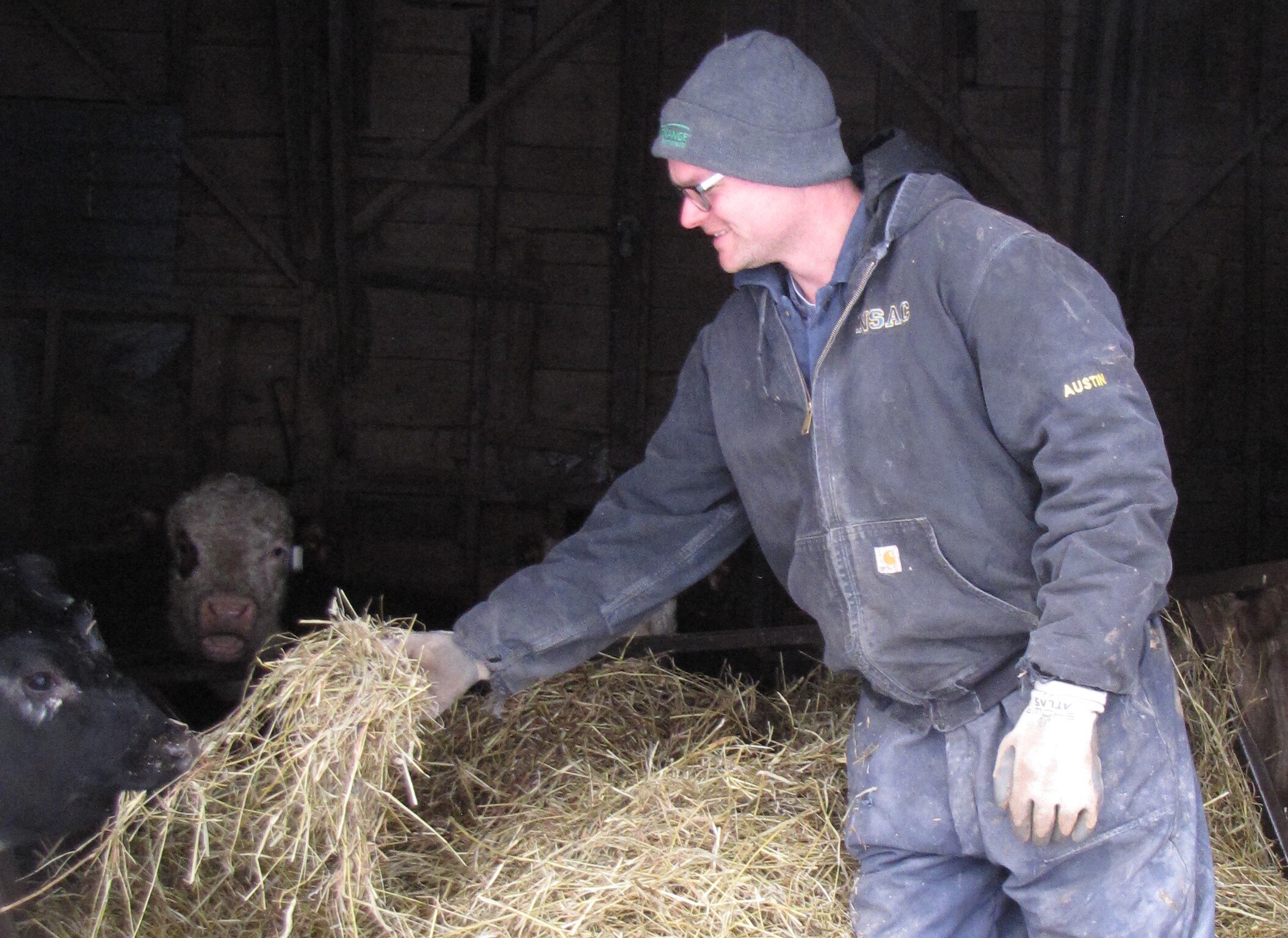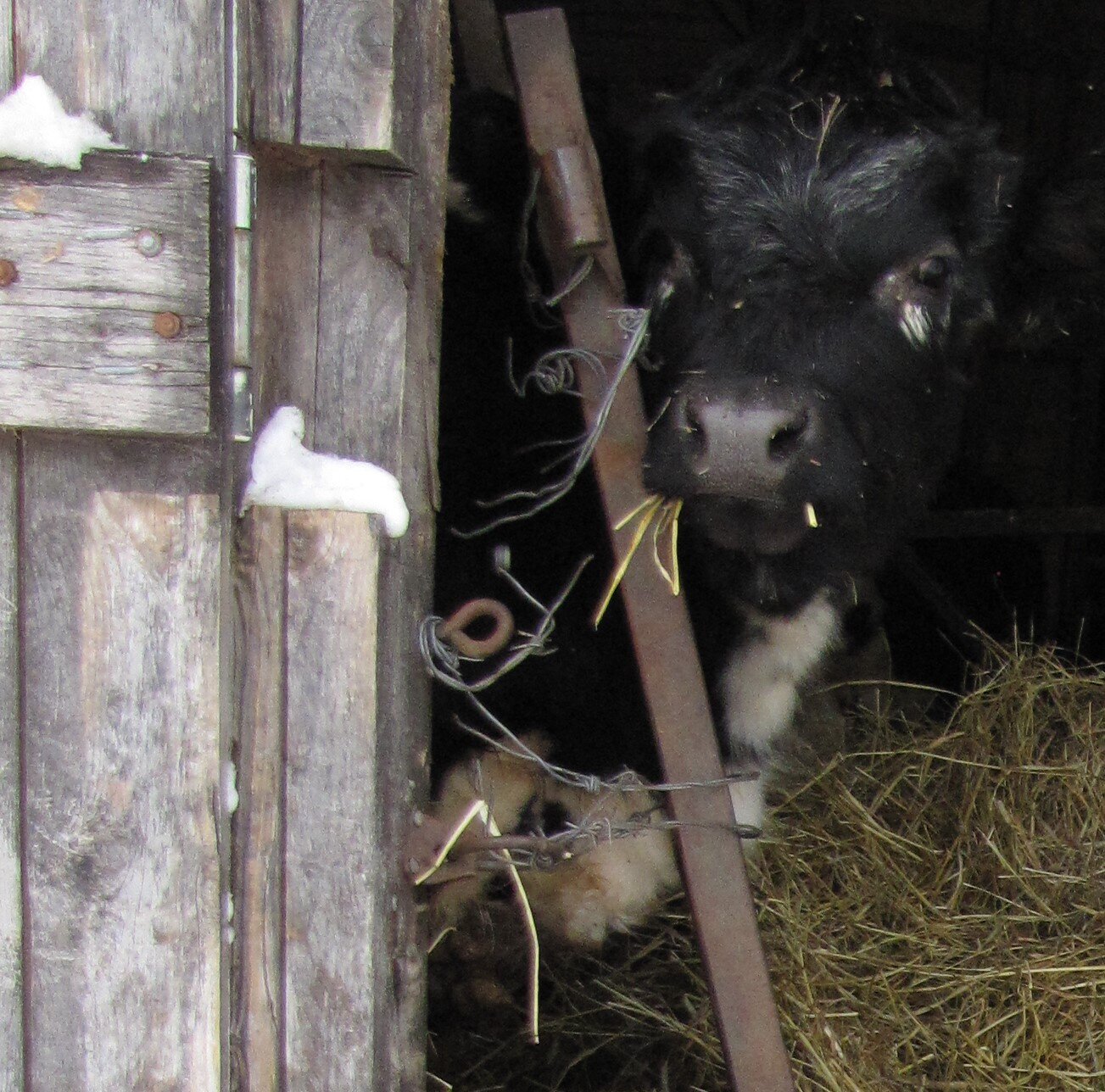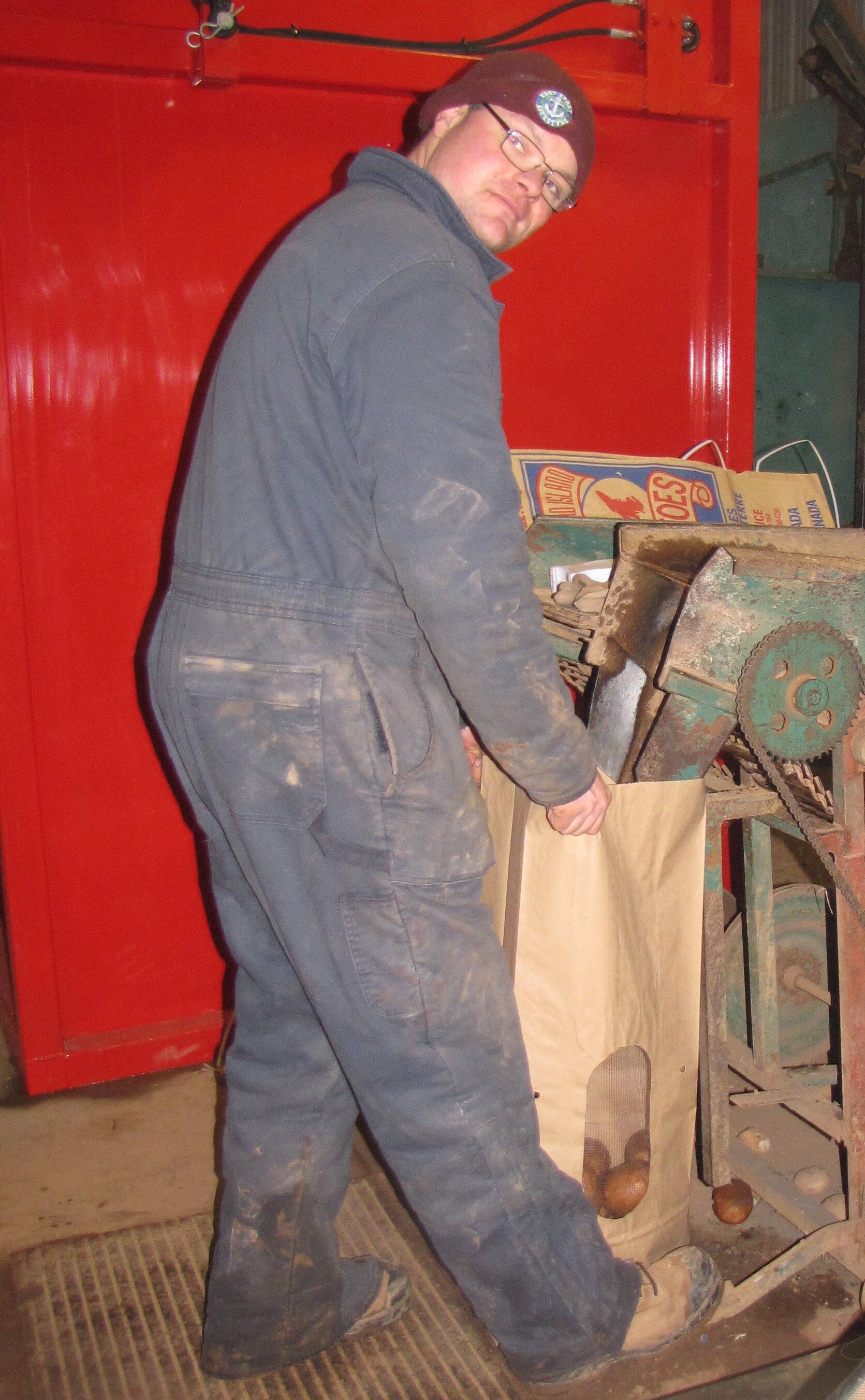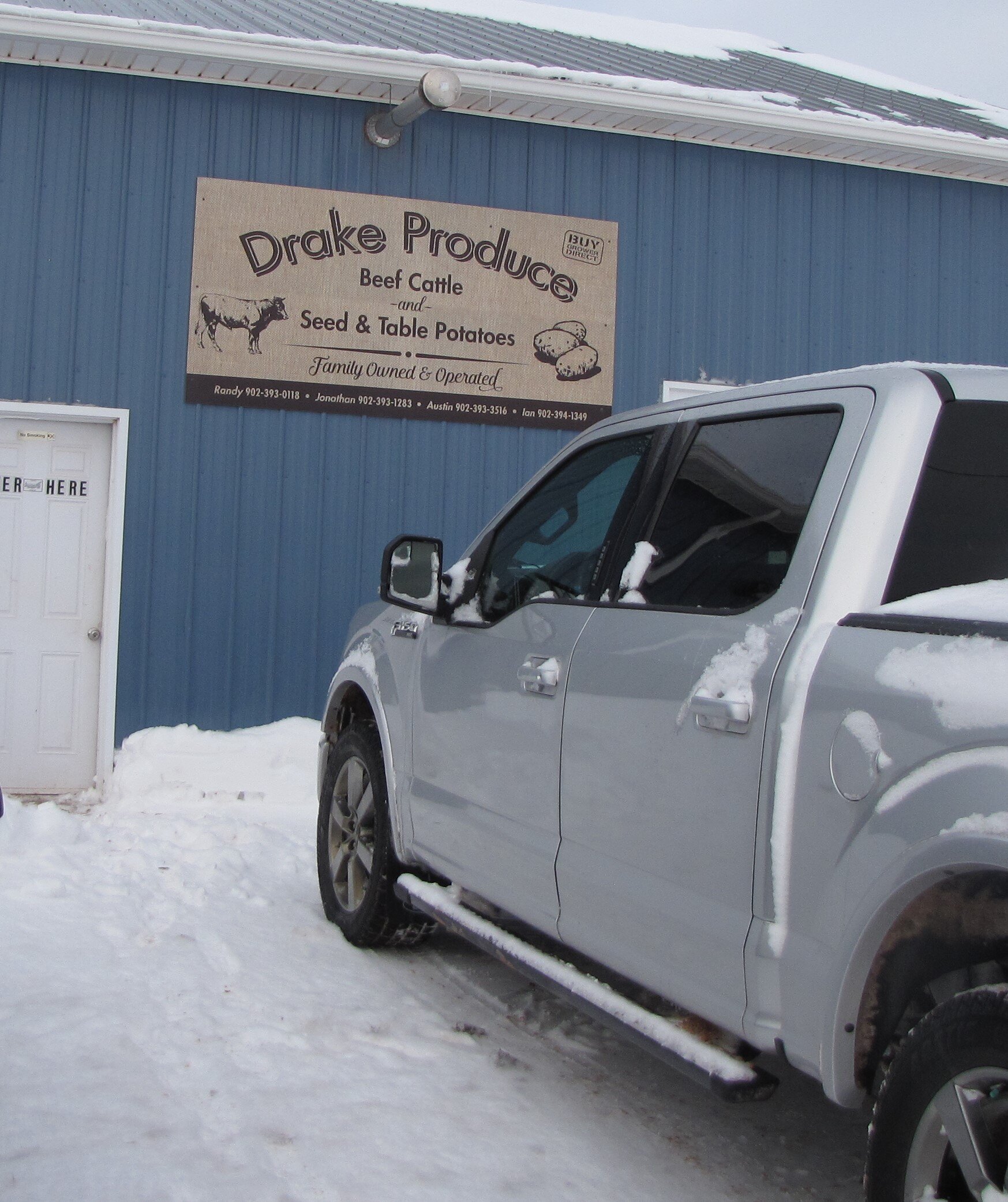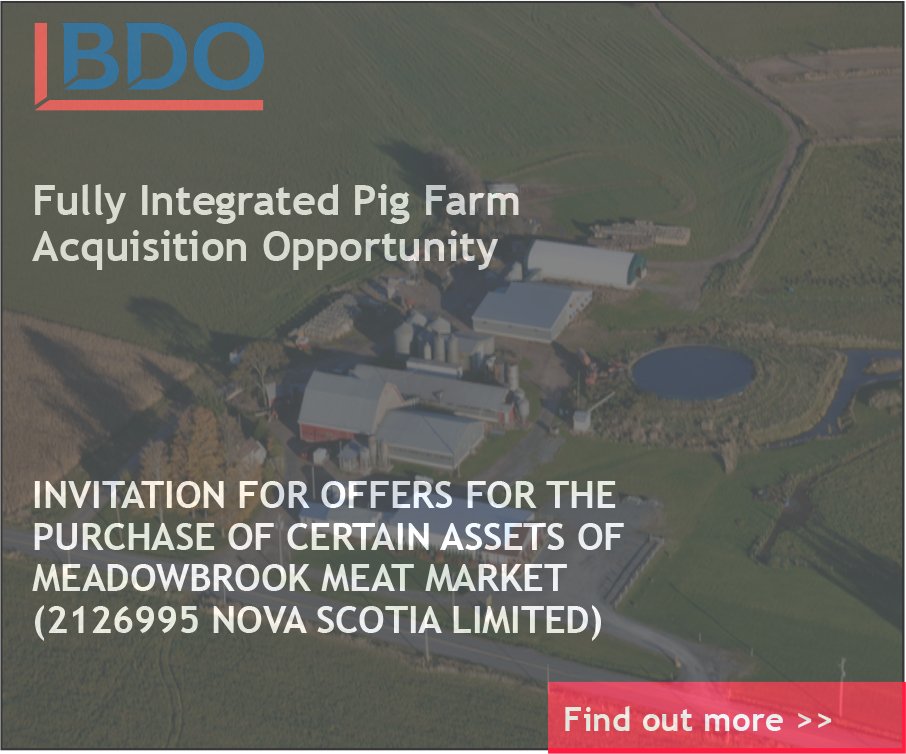Island twins working double time on beef and potato farm
/by Kathy Birt
The number of family farms in Prince Edward Island may be dwindling but twin brothers in Vernon Bridge are working double time to help keep that trend in check.
Thirty-something identical twins Ian and Austin Drake and their father Paul of Seal River Farms work together with a focus on beef and potato production.
Growing up on the farm meant being involved from an early age. “We always worked around the farm,” said Austin.
Ian worked on other operations for a while but eventually opted to come back home and carry on with his brother and father.
“I worked on other farms for the experience and to see how other (farmers) did things,” said Ian, adding that he worked on a turnip farm and a beef and potato operation. He and Austin have also worked on dairy farms.
Their father said the present partnership works well, and at 61, he has no plans to retire any time soon. “Got a lot of working years left,” said Paul.
Paul and his wife Vivian also have a daughter Lynn, who is a nurse. Paul noted that Vivian used to provide childcare services from home for others after their own three children had left, but with those kids now in their teens, “She likes to work around the farm in the mornings.”
Ian and Austin both studied at the former Nova Scotia Agricultural College in Truro. Austin focused on plant science and Ian focused on animal science.
“We did that so that we would have the knowledge of both the beef and potato,” said Austin. “It was always in our mind to come back to the farm.” Both are married with children and live near the home farm.
Their father Paul farmed all his life with his late father Donald. Paul also had his brother Leslie as his farming partner.
Sadly, as Ian and Austin were in the process of buying their uncle Leslie’s shares, he died suddenly from heart failure in July 2018 at the age of 54.
“We had to get the paperwork pushed through with our aunt and cousin,” said Austin. “The land and cattle had been decided on, but the signing had to be done. There were tears as we left the lawyer’s office that day.”
Just two years into farming full time with each other and their dad, Austin said corn silage is one new crop they introduced since buying into the partnership.
They’re typically feeding around 400 head of cattle at any given time, a chore that takes considerable time. Other work includes ongoing care and shipping of the cattle, taking part in the P.E.I. Easter Beef Show and Sale in Charlottetown, getting crops in the ground in the spring, harvesting in the summer and fall, and grading potatoes for market. It’s evident that these Drake men keep busy year-round.
Spring is a particularly busy time spent getting crops in the ground. They grow 350 acres of potatoes, 100 acres of barley, and 40 acres of corn. They also have 120 acres in hay.
The Drakes buy most of their cattle locally, with some occasionally coming from Cape Breton. “We like to support the neighbours if we can,” said Austin. “We buy in the spring and fall, and usually ship about 10 head every two weeks to Atlantic Beef Products in Borden.” They market using the P.E.I. Certified Beef Brand.
Feeding the cattle is first on the list of chores early each day.
“Dad helps me with the feeding, and it takes up to three hours in the morning,” said Austin. “We go around the barn several times to make sure all cows get corn, silage, grain, and cull potatoes.”
The pens are cleaned out once or twice a week.
Austin discussed the possibility of investing in total mixed ration (TMR) equipment, which would cut the time it takes to feed in half.
The brothers have been showing cattle at the Easter Beef Show and Sale for about 20 years, and both serve on the event’s board of directors. “It’s a good couple of days with other farmers,” said Austin. “The two we show always get sold – usually to a local restaurant.”
Planting and harvesting the potato and forage crops is done in partnership with Paul’s first cousin Francis Drake and his sons Randy and Jonathan.
“We do all the planting and harvesting together,” said Austin. “And we all do the silage and haymaking. It’s a good relationship and we share and own farm equipment together as well.”
This joint family of farmers is diligent when it comes to machinery maintenance. “We trade in every two to three years,” said Austin. “Our preference is to not keep equipment until it’s old and broken down.”
He pointed out that the potato packing line has seen recent upgrades as well. “We use a packing palletizer to pack 50-pound bags,” said Austin. “We also do 2,500-pound totes to ship to Boston. We have a distributor who buys those and repacks them for the retail market. Potatoes to Costa Rica and Trinidad go by container.”
The table stock going to Boston is washed, while the large shipments to Costa Rica and Trinidad are dry-packed. “They get brushed off,” said Austin.
Because their livelihoods depend on it, the bottom line is important to this family. And growing both beef cattle and potatoes gives them a little insurance when it comes to the bottom line. “If beef is not good, potatoes are there to fall back on,” said Austin, adding that prices for both have been good for the past couple of years.
